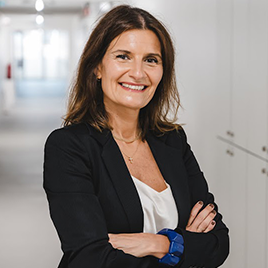Objectives and competences
Biointerfaces and Cell Behaviour curricular unit has the following pedagogical objectives:
- To provide key fundamental concepts on surface science and interfaces and their role in living systems.
- To understand how bioinspired and biointeractive surfaces can be created to generate biomaterials with unique properties (biosensor, stimuli-responsive, instructive).
- To learn the main mechanisms of interaction between material surfaces and cells/tissues and consequently the impact on their biological performance, with a special emphasis in cell metabolism.
- To understand the metabolomics pipeline role as an interface, from signal acquisition to signal processing for understanding and monitoring complex biological systems.
Teaching Methodologies
The curricular unit is organized into 10.5h theoretical and 12h theoretical-practical, 13.5 laboratory practices and 3h of fieldwork. The contents of the T lessons are transmitted through expository and interrogative methodologies, enabling the active participation of students. Multimedia projection is used as a didactic auxiliary (slides/videos). In the TP classes are used active methodologies, having the internet as a tool for development of a multimedia presentation. In laboratory classes and during the visit are also used active methodologies.
Syllabus
A. Theoretical Classes
I. Surface dynamics at the interface
I.1 Biomimetic, biosensor and stimuli responsive surfaces
I.2 Instructive surfaces
II. Cell dynamics at the interface
II.1 Cell interactions with the surface (micro/nano level)
II.2 Cell behaviour – Signaling
III. Signal processing in complex biological systems: metabolomics
III.1Target vs untargeted approach
III.2 Analytical signals: spectroscopy techniques
III.3 Data structure
IV.4 Pre-processing techniques and data analysis
VI.5 Network reconstruction
B. Seminar
C. Laboratory Classes
I.1 Cell culture on the prepared materials
I.2 Introduction to multivariate analysis in MATLAB
I.3 Analysis of data obtained in I.1.




